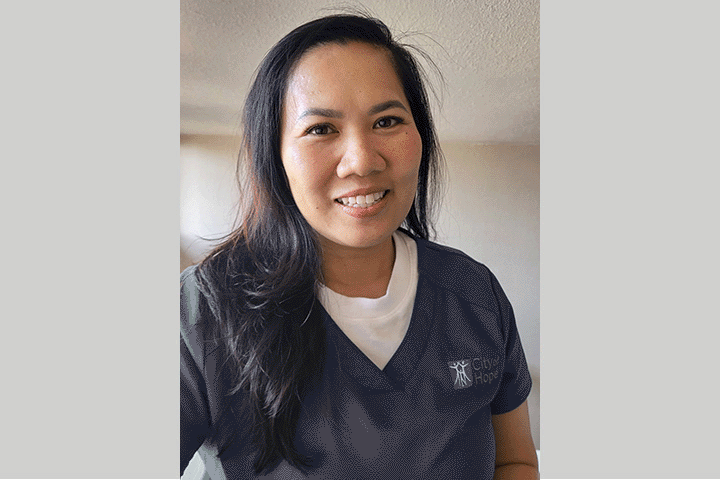In the Fight Against Pancreatic Cancer, Knowledge Is Power
Allyson Ocean, M.D.

After a pancreatic cancer diagnosis, every moment counts. By connecting patients with the latest research, Let’s Win is arming them with facts they need to make the most informed decisions they can about their own care.
Let’s Win.
I’ve always been a problem solver. I remember spending many late hours as a kid, turning the Rubik’s Cube. I could not put it down until I solved it.
I feel this way about certain challenges in medicine. Ever since I started working in oncology fifteen years ago, pancreatic cancer has been my Rubik’s Cube.
We need to find a solution. Now the third leading cancer killer in America behind lung and colon cancers, pancreatic cancer is one of the deadliest, most intractable cancers in the world. Seventy-five percent of pancreatic patients perish within a year of diagnosis, as most patients present with advanced disease, which is considered incurable. Standard of care treatments are typically not effective in the long term, and patients face daunting odds, with limited information on alternative treatments.
As a medical oncologist focusing on pancreatic cancer, I can’t tell you how many times I’ve had to look into patients’ eyes and tell them they have a disease without a known cure—and that it is likely to kill them in a short time. This makes me angry, and I channel this anger toward finding the best treatments for pancreatic cancer. What many pancreatic cancer patients don’t realize is that there are many more treatment options available to them today than there were even five years ago. Unfortunately, not every patient finds out about that new research, or knows how to leverage it for use within the context of their own care.
For this reason, I am thrilled to launch Let’s Win: An Interactive Website for Pancreatic Cancer Treatment, created to provide potentially life-extending information to patients and their families in an accessible platform. We developed Let’s Win to empower patients with information: through the site, patients will be able to share details about pancreatic cancer treatments that go beyond the traditional standard of care. Let’s Win will enable patients to communicate and share new research, with the goal of giving patients the tools they need to ask the right questions when they’re heading into conversations with their doctors.
The heart and soul of Let’s Win is the Survivors Stories section. I like to think of this as the “n=1” of the Let’s Win platform. The “n” in research is the number of patients enrolled in a clinical study; the higher the “n,” the more the results of a trial are validated, and the easier it is to prove or disprove a hypothesis. But because pancreatic cancer is such a unique disease, there is something to be learned from every individual. Every unique patient story that veers away from the standard can be instructive. I learn something new from every patient with pancreatic cancer, every n=1. In the Survivors Stories section of the website, patients will be able to share their personal experiences and learn from each other.
At Let’s Win, we’re also highlighting new research about novel treatments. It can take a long time for new science to go from the lab to the clinic—but as anyone who’s dealt with pancreatic cancer knows, patients don’t have time to waste. What’s more, the scientists doing the research want to connect with patients, but don’t always know how. “In the digital age, biomedical scientists are frequently contacted by lay individuals seeking medical help, but they still receive little, if any, training in how to respond,” Paul S. Knoepfler, Ph.D., a pioneering stem cell researcher, recently wrote.
Let’s Win will fill this space, cutting through red tape, breaking down silos, digesting research and getting it out to patients in ways they can use. In our Promising Science section, we’re going to be writing about new, groundbreaking research developments—as well as what’s going on in various clinical trials. Fewer than 4 percent of pancreatic cancer patients enroll in clinical trials, but many more, potentially, could benefit from them. There are numerous trials going on, at research institutions and medical centers around the country, involving new drugs, new targets for specific genetic mutations, etc. Let’s Win will give patients information they need to inquire about trials at research institutions near them.
We hope Let’s Win will also play an important role for oncologists who do not specialize in pancreatic cancer. Physicians who do not see many pancreatic cancer patients (the case with most general oncologists) may not be up to date about important advances: the vital role of genomic testing, for example; how genetic mutations might be driving a person’s cancer; how targeted therapies may affect a patient’s tumor growth or have the potential to improve his or her outcome. We’d like all oncologists treating this disease to be able to use Let’s Win to deepen their understanding.
Knowledge is power in the fight against this disease. By working together, we believe we can shift the odds—and give people hope. Please join us in this endeavor. Together, Let’s Win.
Allyson Ocean, M.D., is an oncologist specializing in gastrointestinal cancers at Weill Cornell Medical Center in New York. She is the Chair of the Let’s Win scientific advisory board.




